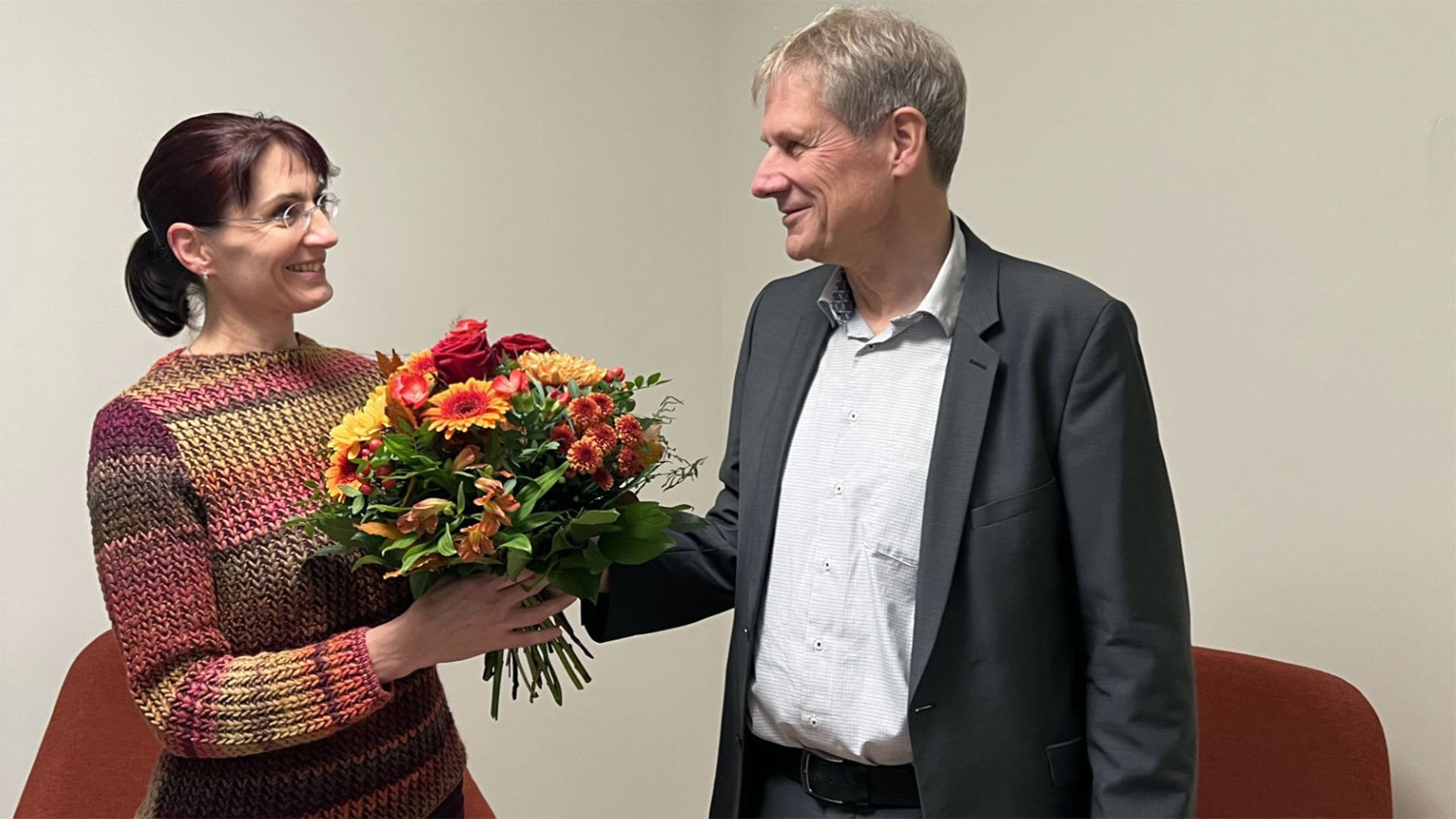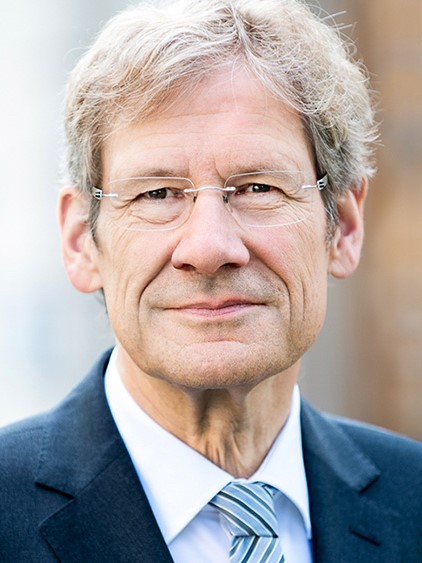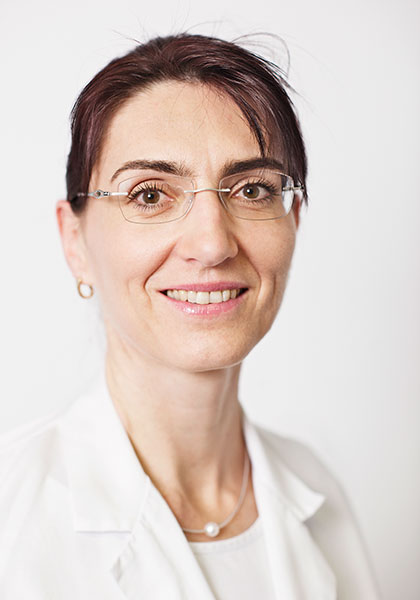Navigation auf uzh.ch
Navigation auf uzh.ch

Nicole Ochsenbein, since 2010 you have headed up the Department of Obstetrics at the University Hospital Zurich with around 70 staff. Last week, you were the first participant to successfully complete the new leadership program for professors. Congratulations! What did the program teach you that you didn’t know before?
Nicole Ochsenbein: For me, the program was an opportunity to take a step back and reflect, besides all the practical input we received. And I took this opportunity – despite being under time pressure. I found the modules on conflict situations and dealing with staff members particularly interesting. It was motivating to think about what I could do differently or how I could improve. Leaders and managers need to support their team members, provide impetus, but also step back. Clear communication is crucial. If leaders give straightforward instructions and clearly designate responsibilities, everyone can more quickly find their place in the team. I found reflecting on my own behavior in terms of these points and getting new ideas and suggestions very valuable.
Klaus Jonas, do all professors have what it takes to lead?
Klaus Jonas: Leadership can be learned, but perhaps some find it easier than others. There are meta-analyses that have studied successful leaders. For example, what sets successful leaders apart is their openness towards different sorts of people and the fact that they are extroverts; in other words, they enjoy working with others. They are also people who aren’t overly critical.

A good leader encourages their team to develop personal initiative, but also clarifies expectations and sets goals.
What leadership style do you and your team promote in the leadership program?
Jonas: As opposed to a directive leadership style, which revolves around fixed rules and discipline, we favor a transformational approach. This leadership behavior is particularly successful in a dynamic working environment, such as in higher education settings. Some of the most important transformational leadership behaviors include acting as a role model, motivating, providing intellectual stimulation and offering individual support. A good leader encourages their team to develop personal initiative, but also clarifies expectations and sets goals. Research into leadership behaviors clearly shows a correlation between the characteristics mentioned above and employee satisfaction and commitment.
The 2022 university-wide employee survey showed that in some cases there is still room for improvement in terms of leadership at UZH. What do leaders at UZH need to improve according to the survey?
Jonas: I was involved in a working group that analyzed the employee survey. One thing was very clear from the responses we received: staff were critical of leaders who don’t set enough goals, don’t set out clear expectations and don’t give enough feedback. A laissez-faire leadership style is not appreciated. Research also shows that this sort of hands-off approach leads to problems, such as more conflicts within teams.

But as a leader, it’s also important to treat people as individuals. What works for one employee might not automatically work for others.
Nicole Ochsenbein, you lead a large team. Do you set out clear goals?
Ochsenbein: I’m very goal-oriented. In my research group, for example, I give my doctoral students clear guidance and set deadlines. From the feedback I receive from my team members, I feel like this is the right approach. But as a leader, it’s also important to treat people as individuals. What works for one employee might not automatically work for others. I have to sense what is the right approach at the specific time. This requires tact and instinct.
What motivated you to take on leadership responsibility?
Ochsenbein: I had great role models myself. My doctoral thesis supervisor, for one. She got me interested in research, as I had initially only wanted to work in clinical practice. She was an outstanding medic and also a role model as a mother, as she had five children. There were also mentors in the department who were role models in their leadership style. They were good at motivating their teams. All of that convinced me that I wanted to take on a leadership role, too.
So was it how you expected it to be?
In medicine in particular, leadership and management roles are very demanding. I work in the hospital and in research and teaching, and I’m responsible for my doctors, nurses and administrative team. Juggling these different roles is very challenging and stressful. At the hospital, there are always emergencies where on-the-spot decisions need to be made. Then you have night shifts. That places high demands on people – even those without leadership responsibility. I also have to keep an eye on the budget and on the financial and legal side of things.
Have you learned to handle this pressure?
I have a family who support me and gives me strength. I’m also very well organized. What I’d really like to see – in terms of continuing education – would be a coaching scheme geared specifically to doctors to help us develop strategies to cope with this stress and pressure, so that it doesn’t consume us.
Klaus Jonas, does the continuing education program for professors also include faculty-specific continuing education programs for leaders and managers?
Jonas: The program aims to develop a common leadership style for all faculties in line with the characteristics I just described: being a role model, acting with integrity, but also setting goals. However, doctors are a special group because of the additional pressures of clinical practice. In collaboration with the Faculty of Medicine, we therefore offer conflict and stress management courses tailored to doctors that can be attended as supplementary courses as part of the leadership program.
From our conversation I’m seeing that it’s a huge challenge for professors to lead a team effectively. Couldn’t managers who don’t hold a professorship relieve some of the pressure?
Jonas: In the dean’s offices and departments, we already have managers and administrative heads who do a great job, and on the Executive Board of the University and in the individual departments, there are designated managers, for example for finance. Good collaboration between the various leadership and management roles is essential.
Ochsenbein: I have a department manager to assist me, which is extremely valuable. But if someone were to come along without any knowledge of medicine or obstetrics, take a disruptive approach and start ripping up the rulebook, that wouldn’t be useful. In our field, a medical background is vital to getting things done.
The leadership program launched in March 2023. What experience can you take from this first edition? Is there anything that could be improved?
Jonas: Twenty-four people took part in the 2023 program. All courses are evaluated, and so far they have received good ratings. Participants particularly value the specialist input, but also the interaction with peers. I’d also like to stress that in the design and execution of the program, we benefited enormously from the experience and expertise of the Office for Continuing Education, which has been offering courses for leaders as part of its higher education and science management program since 2015.